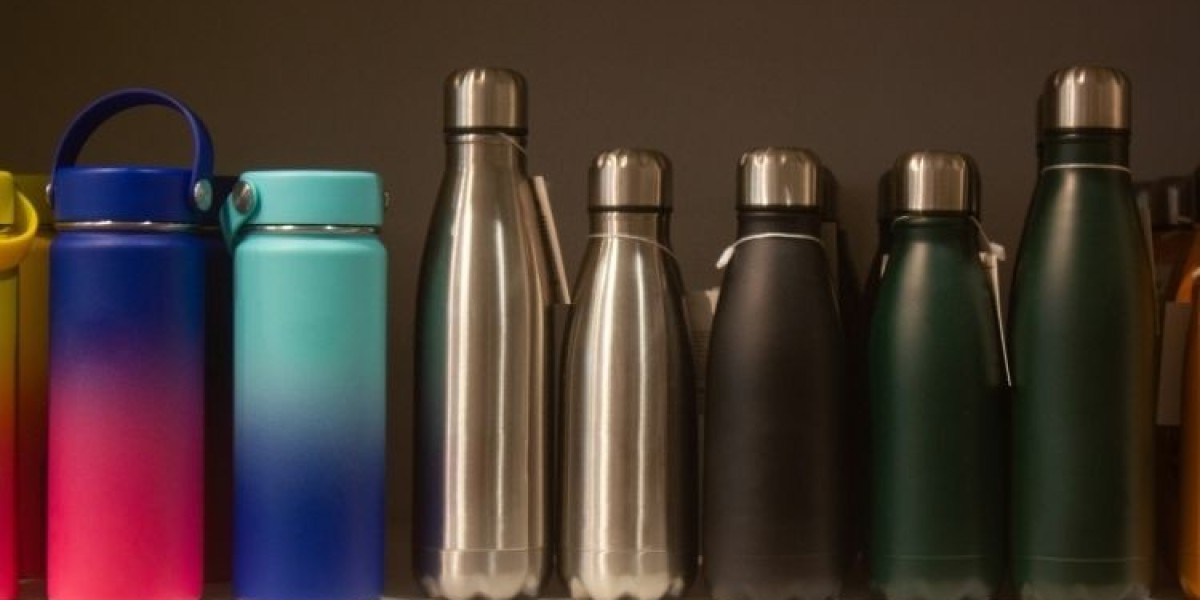Reusable water bottles have moved far beyond their humble beginnings as simple hydration containers. Today, they are symbols of environmental responsibility, personal style, and practical functionality. From lightweight BPA-free plastic bottles perfect for daily commuting to sleek stainless steel models capable of keeping beverages hot or cold for hours, the variety and appeal of these products are growing rapidly. Health-conscious consumers and eco-advocates alike are driving demand, creating a marketplace that is not just thriving but evolving in exciting ways. As awareness spreads about the environmental impact of single-use plastics, more people are making the switch to a reusable option they can carry with pride.
Expert Market Research Insights on the Growth of Reusable Bottles
According to Expert Market Research, the Reusable Water Bottles Market is undergoing remarkable expansion as sustainability trends increasingly influence consumer purchasing behavior. The rising demand for eco-conscious products, combined with growing awareness of hydration’s health benefits, is accelerating market adoption. Brands are responding with innovations in insulated technology, customizable designs, and smart features that track water intake. The research also notes that businesses incorporating these bottles into corporate gifting and marketing strategies are further fueling demand, giving the sector a dynamic and multi-faceted growth trajectory.
The Sustainability Factor That’s Changing Consumer Choices
The environmental crisis surrounding plastic waste has been a major catalyst for the shift toward reusable bottles. Millions of disposable bottles are discarded daily, and the long-term impact on oceans and landfills has sparked global concern. This awareness is no longer limited to environmental activists; it has become mainstream. Governments and local authorities are enforcing bans or heavy taxes on single-use plastics, encouraging citizens to seek eco-friendly alternatives. NGOs are also promoting zero-waste lifestyles, and reusable bottles are emerging as a central part of this movement. This shift has been amplified by consumers who are not just buying products—they’re making a statement about their values.
Innovation That Redefines Everyday Hydration
Gone are the days when a reusable bottle meant a simple plastic container with a screw-on cap. Today’s designs incorporate high-performance insulation, ergonomic shapes, and advanced materials. Some bottles feature temperature retention technology that keeps drinks cold for over 24 hours or hot for up to 12. Others integrate filtration systems for clean water on the go, perfect for travelers and outdoor enthusiasts. The rise of smart bottles with hydration tracking and app connectivity is another sign of how technology is shaping even the simplest of daily habits. Personalization is also trending, with brands offering custom colors, engravings, and graphics to make bottles unique to their owners.
Fitness, Lifestyle, and the Social Media Effect
Reusable bottles have effortlessly bridged the gap between utility and style. For athletes and fitness enthusiasts, performance-driven designs with easy-sip lids and non-slip grips are essential. For urban professionals, elegant, minimalist bottles match their daily aesthetic while promoting healthy hydration habits. Social media platforms like Instagram and TikTok have played a pivotal role in turning reusable bottles into lifestyle accessories. Influencers showcase them alongside workout routines, travel adventures, and office desk setups, inspiring followers to view these bottles not just as functional items but as part of their personal brand.
Corporate and Institutional Adoption Driving Mass Use
Workplaces, schools, and universities are also contributing to the adoption rate. Companies are increasingly distributing branded reusable bottles to employees as part of sustainability pledges or wellness programs. Schools are replacing vending machine soft drinks with free water refilling stations, making reusable bottles a daily necessity for students. Such institutional moves normalize their use across demographics, ensuring that the transition away from single-use plastics is both practical and long-term. In the corporate world, these bottles are doubling as promotional merchandise, subtly reinforcing brand identity while aligning with green initiatives.
E-commerce and the Digital Shelf Advantage
The growth of online shopping has made reusable bottles widely accessible. Digital platforms offer hundreds of styles, sizes, and materials, making it easy for consumers to find one that suits their specific needs. The convenience of browsing customer reviews, watching product demonstrations, and comparing specifications online has encouraged first-time buyers to make the switch. Subscription-based services are also emerging, where customers can receive seasonal design updates or replacement components, further driving repeat purchases and brand loyalty.
The Road Ahead: Sustainability Meets Technology
The future of reusable bottles is being shaped by two key forces—advances in materials and the integration of technology. Manufacturers are experimenting with biodegradable plastics, recycled stainless steel, and even plant-based materials to enhance eco-friendliness. Technology, meanwhile, is making bottles more interactive, with features like LED hydration reminders, UV sterilization, and real-time intake tracking. These innovations not only add value but also deepen consumer engagement, ensuring the bottle remains an essential part of everyday life.
Consumer Mindset and Long-Term Growth Potential
As more consumers make sustainable choices, reusable bottles are set to remain a staple product across households, workplaces, and travel gear. The emotional satisfaction of contributing to a cleaner planet, combined with the practical benefits of convenience and cost savings, keeps demand high. Marketing campaigns are increasingly focusing on this dual appeal—selling not just a product, but a purpose. In the coming years, expect to see even more collaborations between bottle brands, lifestyle influencers, and environmental campaigns, further cementing reusable bottles as an everyday essential with cultural relevance.






